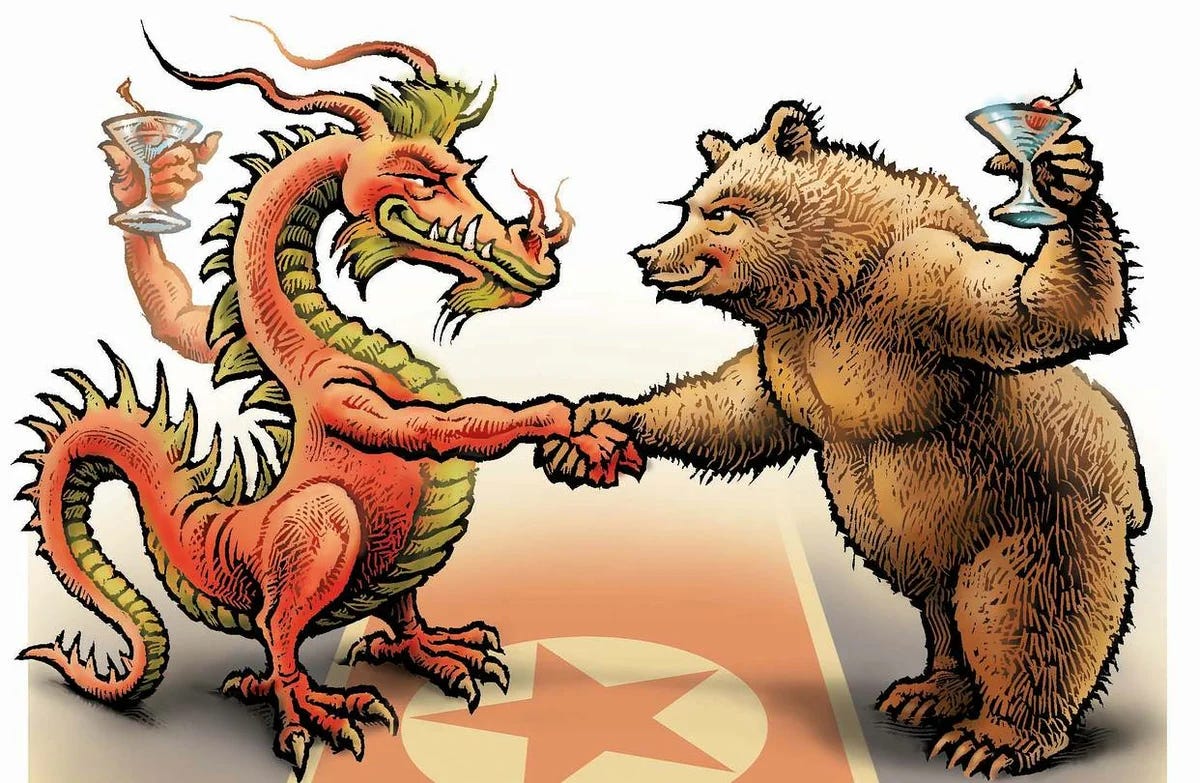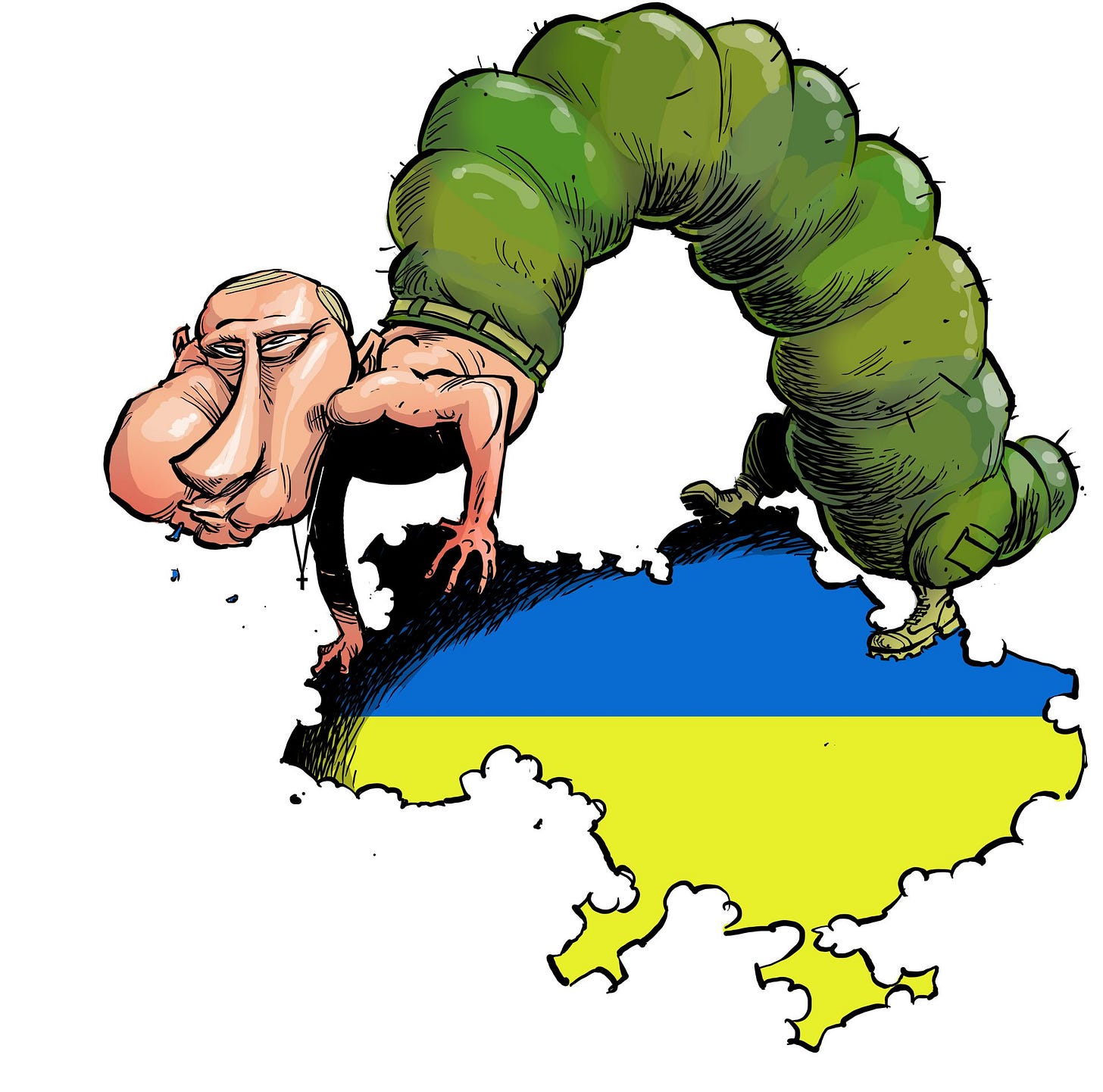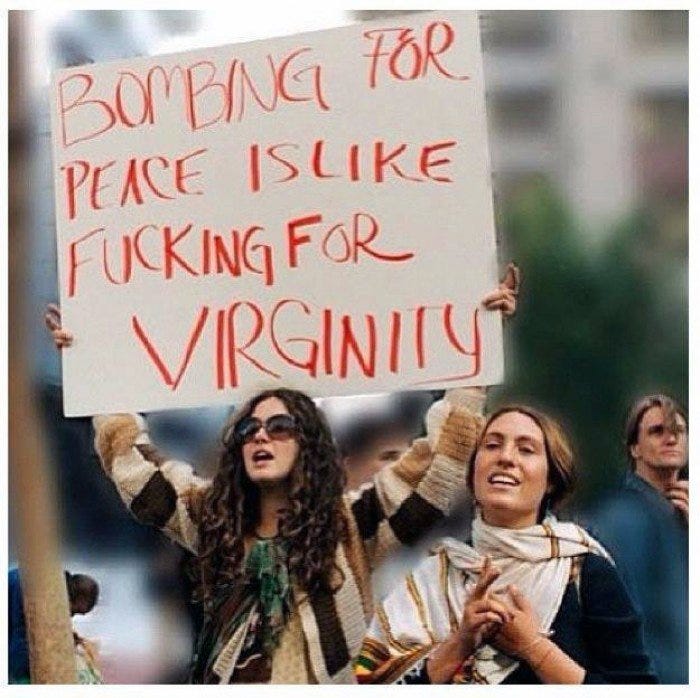May 25, 2022
Rockets hit the economy
These are the kind of volunteers
Beijing is concerned
The entrance to Russia is open
The real threat
Interests of bureaucrats
Tomorrow’s decision is not a secret
There will be no catastrophe. There will be some fine-tuning
Rockets hit the economy
The Russian military continues its offensive in eastern Ukraine and missile strikes on cities and facilities far from the front lines. Although the Russian army talks about using high-precision weapons, practice shows that missiles often fail to hit the target.
The Russian Defense Ministry reported today that “High-precision long-range air and sea-based missiles in the city of Zaporizhzhia destroyed the production shops of the Motor Sich plant, which produced aircraft engines for combat aircraft of the Ukrainian air force, including unmanned aerial vehicles.” However, photographs published by Ukrainian publications show that the missile strike destroyed a shopping mall and several residential buildings. Motor Sich is one of the world’s leading manufacturers of aircraft engines. Until 2014, its engines were installed on all helicopters manufactured in Russia. After the annexation of Crimea, Ukraine imposed a ban on engine deliveries to Russia, and Russian companies began actively recruiting leading engineers from Zaporizhzhia.
These are the kind of volunteers
According to all experts, the Russian army is facing enormous problems in replenishing its numbers. The Kremlin is not ready to declare an official mobilization, trying to solve this problem by less public means.
On Wednesday, the State Duma passed in the first, and immediately the third and final, reading a law on abolishing the age limit for the first contract for military service. Up to now, citizens between 18 and 40 years of age may conclude their first military service contract. After the enactment of the law, this limit will be canceled.
However, the limit established by the law does not work. This is confirmed by the available information about the death of retired major-general Kanamat Botashev, a 62-year-old pilot whose plane was shot down three days ago in the skies over Ukraine. Botashev commanded an aviation regiment stationed in Voronezh and had a reputation as an excellent sniper pilot. His military career was cut short in June 2012 when he asked a colonel friend to take him for a ride in a Su-27, which he was not authorized to fly. Botashev decided to perform an aerobatics stunt during the flight but failed to control the plane. The fighter went into a spin and crashed; the pilots ejected. Botashev did not deny his guilt at the trial, confessing that “I just wanted to fly a fighter of this type, but did not consider that such aircraft have its features.” The general was found guilty of the plane crash and sentenced to four years’ probation and a fine of 5 million rubles.
After the trial, Botashev resigned from the armed forces and worked as deputy chairman of the DOSAAF of St. Petersburg and the Leningrad region on aviation.
Beijing is concerned
Russian aggression against Ukraine is beginning to have a severe impact on the economic situation in the world. Restrictions on Russian raw materials and primary export products lead to higher prices and threaten to have long-term negative consequences. The main threat is a sharp aggravation of the situation in the world food market. On the one hand, the Russian military is blocking the export of agricultural products from Ukraine, the world’s largest exporter of sunflower oil and one of the world’s largest exporters of grain. On the other hand, an embargo on fertilizer exports from Russia and Belarus could drop crops in many countries.
The worsening situation in the food market is becoming more and more evident and forces China, which for three months tried not to respond to the consequences of the war, to show initiative. Chinese Foreign Minister Wang Yi said that it is necessary to form a “green corridor” as soon as possible to ensure grain exports from Russia and Ukraine in the existing circumstances.
“In the current situation, the international community should facilitate a ceasefire as soon as possible to ensure a green corridor for grain exports from Russia and Ukraine... China never stands aside when dealing with issues of international concern... [China] is ready to communicate with all parties” on the issue of grain exports as well.
Russia couldn’t help but pay attention to Beijing’s position, but Moscow’s reaction was superficial. According to Russian Deputy Foreign Minister Andriy Rudenko, Moscow admits the possibility of international negotiations on grain exports from Ukrainian ports.
“We have interaction with the UN on these issues; the issue was discussed in detail during the visit of [UN Secretary-General António] Guterres to Moscow. Further consultations on how the UN can help in this situation.”
Suppose Russia does not soon find a way to unblock Ukrainian food exports in a convenient way for Ukraine and a comfortable way for Russia. In that case, tensions between Russia and China should be expected to rise—although wheat imports account for about 8% of Chinese consumption, Ukrainian grain accounts for about 2/3 of all imports. It is impossible to replace it quickly, due to bureaucratic procedures.
The entrance to Russia is open
Meanwhile, the Kremlin pulled out its favorite tool of “hybrid warfare”: Vladimir Putin signed a decree suggesting a simplified procedure for issuing Russian citizenship to residents of the Zaporizhzhia and Kherson regions of Ukraine, part of which is currently occupied by the Russian army. This decree enters into force from the day of its signing—i.e., from May 25.
The distribution of Russian passports was actively used in South Ossetia and Abkhazia to strengthen separatist sentiments. After the annexation of Crimea, Russian citizenship was forcibly granted to all Ukrainian citizens living there; refusal to obtain a Russian passport led to restrictions on social and economic rights and sometimes resulted in persecution by the security forces. I would not be surprised if similar tactics were used in the territories of Zaporizhzhia and Kherson oblasts to gain support for the occupation from part of the population.
The real threat
The Tushinsky District Court in Moscow imposed two fines of 30,000 rubles each on politician Ilya Yashin for “discrediting” the Russian army.
The first fine was imposed for publishing a photograph of the 1969 protests against the war in Vietnam. Yashin published the post with this picture on his Telegram channel on April 7. The photo shows a girl with a placard that reads, “Bombing for peace is like getting laid for virginity.” Yashin wrote in the caption to the post that “50 years have passed, and the slogans are still relevant.”
The second fine was imposed because of Yashin’s YouTube stream on March 31. According to Yashin, during the trial, it was announced that the police had found “signs of discrediting the Russian Armed Forces” in the stream, but no one cited a single quote from him to prove this.
Two more protocols for Yashin’s violation of censorship restrictions are pending in court, and dates have not yet been set. Considering that violating censorship bans can result in up to three years in prison, I am worried about the politician’s fate.
Top priority - interests of bureaucrats
Although the financial results of Russian airlines will be deplorable, and most of them will not be able to function without receiving budget aid, the Russian Ministry of Transport proposes introducing an additional fee when applying for air tickets for flights within the country.
The Ministry proposes to spend the collected money to create a reserve fund to support passengers in force majeure situations. For example, if an airline goes bankrupt, its customers will be able to get a ticket for another flight or get their money back for the failed breakout.
For an uninitiated observer, this proposal looks strange. Just recently, the government has decided to subsidize each airline ticket for a flight within Russia at an average of 1,000 rubles. Then the Ministry proposes to take some money from the price of each ticket (amounts ranging from 100 to 250 rubles are discussed) to create a fund. Establishing this fund inside the budget and spending money from it, if necessary, could be much more reasonable. The answer to this conundrum is simple: If the fund is to be created within the budget, then the Ministry of Finance will manage the accumulated assets. And if the fund is created by deducting a portion of the ticket price, someone from the Ministry of Transport will manage the fund’s assets.
Tomorrow’s decision is not a secret
The Bank of Russia continues to send positive signals, which should indicate the normalization of the financial situation in the country: On Thursday, there will be an extraordinary meeting of the Board of Directors, which will decide on reducing the key rate. Of course, no one has announced that the key rate will be lowered, but why would there be an extraordinary meeting to discuss this issue if the economy is not sending out any warning signals? Quite a transparent hint of the forthcoming decision was published by the Bank of Russia the day before: The inflation expectations of the population have declined to the pre-war level (11.2%). Today, Rosstat “supported” the Bank of Russia’s position, saying that consumer prices in Russia fell over the past week, although not by much (0.02%).
The Bank of Russia’s key rate is 14% today, and it may be lowered by 100-200 bps tomorrow.
There will be no catastrophe. There will be some fine-tuning
After the war, the Bank of Russia controlled the state of banks “in manual mode” but is now beginning to move to strategic planning, trying to understand what should be a new regulation of the sector, said the First Deputy Chairman of the Bank of Russia, Dmitry Tulin. He said details of the new “architecture of the financial sector” will be presented this year no later than November.
According to Tulin, the work of the Bank of Russia will be divided into three stages: Analytical assessment of how affected the banking sector is, preparation of calculations and ways of additional capitalization, and then updating the regulatory strategy.
Now, we are assessing the financial soundness of banks. By the end of the month, we will make the first 20 in terms of assets for ourselves. Naturally, there will be some degree of certainty and prospects for the evolution of change in the situation. After that, we will see the scale of the problems, what losses the banks suffered.
In April, Tulin said that the loss of half the capital of the Russian banking sector in the current environment seems quite a likely scenario. Deputy Finance Minister Alexei Moiseyev said earlier that the fundamental problems of banks would be possible to understand only in October, after receiving the statements for the third quarter. But already now, the Bank of Russia is working with the government on various ways to recapitalize banks, Tulin said.
We will certainly need to engage with our government on bank recapitalization.... We will determine the government’s willingness and ability to participate in this process. The government has already announced some of its plans and the form of traditional recapitalization by buying shares. But for ourselves, as part of our visionary activities, we are considering other ways of recapitalization that have not yet been tried in our practice.
Tulin was the first Russian official to say that the closure of part of the statistics would be temporary and that the Bank of Russia intends to return to the practice of banks publishing their monthly reports.
After we bring our positions [on recapitalization] to an agreement with the government, we announce our plans and approaches. Obviously, our decision to gradually publish and disclose banks’ reports will also be timed to coincide with that time.
I am not ready to take for granted the official’s promises to return to information transparency. Still, I am willing to bet that the primary beneficiaries of additional capitalization at the expense of the budget will be the state banks, whose share in the capital and assets of the banking system after that may exceed 80%.






